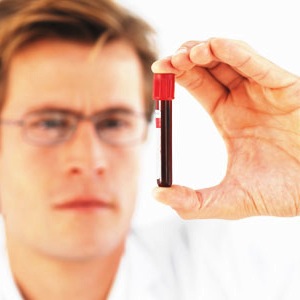 Health care consumers are at the mercy of cholesterol tests that are used to define a person’s risk of disease, existing conditions, and whether or not we are “normal.”
Health care consumers are at the mercy of cholesterol tests that are used to define a person’s risk of disease, existing conditions, and whether or not we are “normal.”
While technology advances have launched society miles and miles into the stratosphere of accuracy compared to where we were say, a hundred years ago, some tests that are proving to be antiquated and inaccurate are still being used and are being found to be dangerously inaccurate- like your annual cholesterol screening.
In today’s article I’m going to explain exactly why the results from your cholesterol test were probably wrong and what to consider instead.
A test that has been used since the 1970’s to measure bad cholesterol or LDL, called the “Freidewald Equation” has been targeted by a growing body of evidence as being inaccurate, oftentimes sullying data that would otherwise identify dangerous cholesterol levels in need of treatment.
A recent mega-study looking at over a million American adults over the span 2 years and compared results from the old testing method that used the Freidewald Equation with a more costly method called ultracentrifugation. Researchers looking at the results found statistically significant differences.
The Freidwald Equation was introduced in the 70s as a way to avoid having to use the more costly and time consuming ultracentrifugation method. It is still the go-to testing method in doctor’s offices today.
LDL cholesterol and other dangerous blood lipid components are not accurately measured using the FE, as compared to the ultracentrifugation, which found an alarming number of participants who needed more aggressive treatment than what the standard test identified.
What many specialists in the field of heart health are looking at now, according to doctors commenting on the study, are the results measuring the non-HDL components that are largely ignored by conventional testing.
The problem with “more aggressive treatment” in the traditional medical sense is that means more dangerous cholesterol drug such as Statins.
The fact is that Statins and most other cholesterol drugs have never been shown in any reliable study to reduce the risk of a first heart attack. To the contrary, they’re linked to several diseases such as type 2 diabetes, internal bleeding, etc.
Instead of focusing too much on tests and drugs, I suggest you take natural approach. Follow this proven step-by-step plan to get your cholesterol under control in 30 days or less – without drugs…
Or discover how 3 easy exercises drop blood pressure below 120/80 as soon as today…

 Multiple Sclerosis
Multiple Sclerosis Banishing Bronchitis
Banishing Bronchitis Gum Disease Gone
Gum Disease Gone Overcoming Onychomycosis
Overcoming Onychomycosis Neuropathy No More
Neuropathy No More The Prostate Protocol
The Prostate Protocol Brain Booster
Brain Booster
 Ironbound
Ironbound
 Solution for Shingles
Solution for Shingles
 The Bone Density Solution
The Bone Density Solution
 The Ultimate Healing Protocol
The Ultimate Healing Protocol
 The Parkinson's Protocol
The Parkinson's Protocol
 The Chronic Kidney Disease Solution
The Chronic Kidney Disease Solution
 Overthrowing Anxiety
Overthrowing Anxiety The Fatty Liver Solution
The Fatty Liver Solution The Hypothyroidism Solution
The Hypothyroidism Solution
 The End of Gout
The End of Gout The Blood Pressure Program
The Blood Pressure Program
 The Oxigized Cholesterol Strategy
The Oxigized Cholesterol Strategy
 Stop Snoring And Sleep Apnea Program
Stop Snoring And Sleep Apnea Program
 The Arthritis Strategy
The Arthritis Strategy The Vertigo & Dizziness Program
The Vertigo & Dizziness Program The 3-Step Diabetes Strategy
The 3-Step Diabetes Strategy Hemorrhoids Healing Protocol
Hemorrhoids Healing Protocol The Erectile Dysfunction Master
The Erectile Dysfunction Master Weight Loss Breeze
Weight Loss Breeze The IBS Program
The IBS Program The Insomnia Program
The Insomnia Program The Migraine and Headache Program
The Migraine and Headache Program The Neck Pain Solution
The Neck Pain Solution The Menopause Solution
The Menopause Solution The Ejaculation Master
The Ejaculation Master The TMJ Solution
The TMJ Solution The Acid Reflux Solution
The Acid Reflux Solution The Fibromyalgia Solution
The Fibromyalgia Solution The Psoriasis Strategy
The Psoriasis Strategy
My Cholesterol is o. k. thank's
My doctor prescribed statins , I only bought once and I did no longer go to that doctor as I did not feel good after taking those medicines. Thank you so much for the information regarding cholesterol.
I was diagnosed with type 2 diabetes before I was prescribed statins. I read
at that time the type 2 diabetes is related to the use of prescription drugs
to treat chronic diseases. One example was the multi-drug cocktail used
to treat.